Psychometric properties of the ParentChild Relationship Inventory (PCRI) were examined using data collected from adolescents and their parents inThe ParentChild Relationship Inventory (PCRI) assesses parents' attitudes toward parenting and toward their children The PCRI yields a quantified description of the parentchild relationship that complements other assessment procedures used in clinical evaluations of children and families Rather than replacing qualitative evaluation of parentchild interactions, the PCRI helps Aggregation creates and maintains a parentchild relationship for the packaging levels and the product owner's information It creates the parentchild relationship by associating the aggregated unit, which is the parent, with each carton's various serial numbers For example, a basic mapping of aggregation may look like this

Development And Initial Validation Of The Parent Behavior Inventory
Parent-child relationship inventory (pcri) pdf
Parent-child relationship inventory (pcri) pdf- Parent–child Relationship Inventory (PCRI, Gerard 1994) This instrument is a 78item parent selfreport measure of parenting skill, attitudes towards parenting and parental attitudes towards their children"Parent Child Relationship Inventory" https//wwwallacronymscom/parent_child_relationship_inventory/abbreviated (accessed ) Harvard All Acronyms 21




Impact Of Parenting Practices On Parent Child Relationships In Children With Specific Learning Disability Karande S Kuril S J Postgrad Med
Parent – Child Relationship Inventory (PCRI) This unique selfreport inventory tells you how parents view the task of parenting and how they feel about their children Designed for use with mothers or fathers of 3 to 15yearold children, the PCRI gives you a clear, quantified description of the parentchild relationship ParentChild Relationship Inventory ParentChild Relationship Inventory is developed by Gerard (1994) and contains 78 items, 7 main and one narrative subscales The responses are based on a 5 degree likert type scale ( 1=never to 5= always), and the questionnaire measures parentchild relationshipParentChild Interaction Therapy (PCIT) Eyberg developed PCIT in the 1970's based on Hanf's twostage operant parent training model Eyberg (1998) designed PCIT to establish a warm, loving parentchild relationship in which the parents can teach appropriate social behaviors to their children and decrease inappropriate social behaviors
Since the variation for color exists within the Beauty category, you must establish a parentchild relationship for each color variation of your lipstick product inventory so long as no other feature (such as brand) is different between the products The Beauty category does not support fragrance variations because in certain circumstances theParents at these same time points to assess whether the skills and knowledge parents have gained translate into improvements in their children's behavior and interactions at home and/or school Aspects of the parentchild relationship are also examined Evaluation design The evaluation employs a quasiexperimental design, including a A parentchild relationship (PCR) is one that nurtures the physical, emotional, and social development of the child It's a unique bond that every child and parent experience, enjoy and nurture The relationship lays the foundation for the child
ParentChild Relationship Inventory Term Paper Pages 5 (1572 words) Bibliography Sources 5 File docx Level Master's Topic Children ParentChild Relationship Inventory The need for an effective assessment of parenting is evident in areas such as research, counseling, and child SUMMARY The parentchild relationship consists of acombination of behaviors, feelings, and expectations thatare unique to a particular parent and a particular childWhereas Parenting is the process of promoting andsupporting the physical, emotional, social, and intellectualdevelopment of a child which is having different styles childrearingGerard, 02) The PCRI is a 78item, selfreport questionnaire that assesses parents' attitude toward their children and toward parenting




Quality Of Parent Child Relationship As Measured By The Crowell Download Table



Www Eif Org Uk Files Pdf Cg Rpc 3 3 Example Measures Pdf
Psychometric properties of the ParentChild Relationship Inventory (PCRI) were examined using data collected from adolescents and their parents in the Fullerton Longitudinal Study Results revealed acceptable internal consistency for most scales and moderate to The materials in this study included the Parent–Child Relationship Inventory (PCRI;Relationship 1 spouse 2 child 3 parent 4 other How often do the two of you Never 1 Seldom 2 Sometimes 3 Fairly often 4 ____ Parents usually can be relied upon to keep their promises Inventory of Socially Supportive Behaviors 325
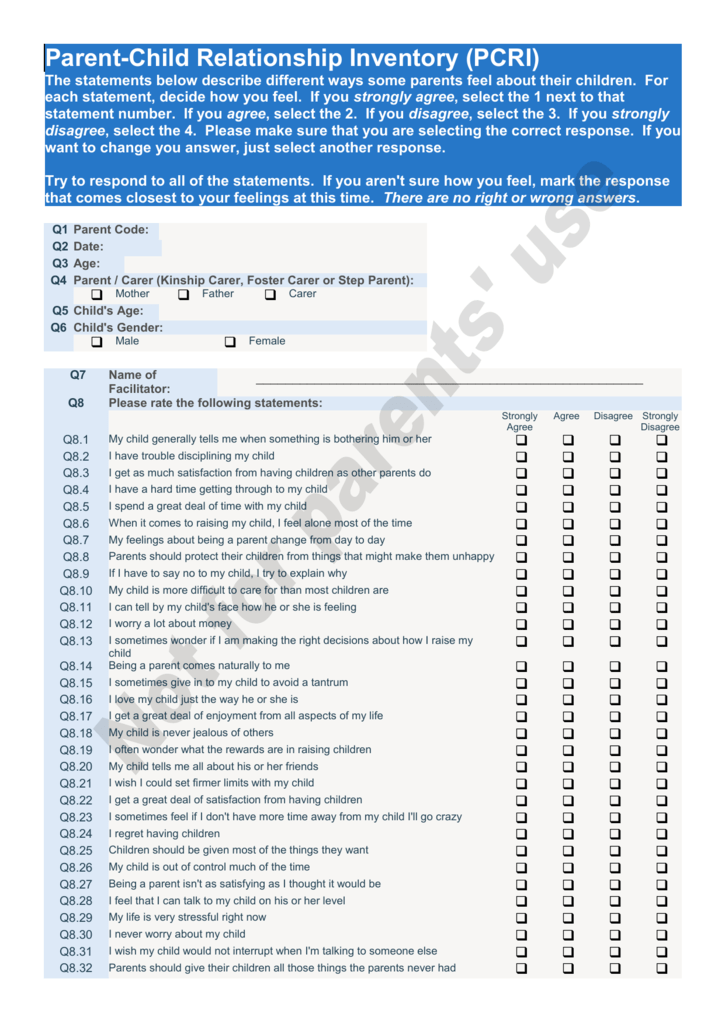



Parent Child Relationship Inventory Questionnaire




Impact Of Parenting Practices On Parent Child Relationships In Children With Specific Learning Disability Karande S Kuril S J Postgrad Med
The Parent–Child Relationship Inventory (PCRI) is one of the most used instruments in child custody contexts, and it is also designed for clinical and research usages This study aimed to initially analyze the psychometric properties of the Hebrew form of the PCRI in an Israeli sample of mothers and fathersParentchild relationship inventory (PCRI) Manual Unknown Binding – Book recommendations, author interviews, editors' picks, and more Read it now Enter your mobile number or email address below and we'll send you a link to download the free Kindle AppThe ParentChild Relationship Inventory (PCRI) is one of the most used instruments in child custody contexts, and it is also designed for clinical and research usages This study aimed to




Validation Of The Mothers Object Relations Scales In 2 4 Year Old Children And Comparison With The Child Parent Relationship Scale Topic Of Research Paper In Psychology Download Scholarly Article Pdf And Read
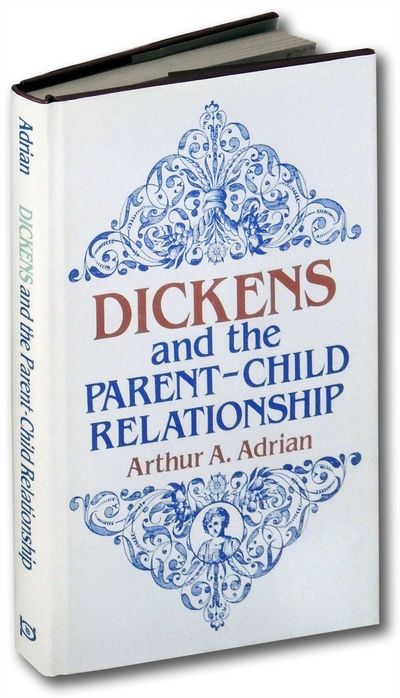



Dickens And The Parent Child Relationship By Adrian Arthur A Search For Rare Books Abaa
This unique selfreport inventory tells you how parents view the task of parenting and how they feel about their children Designed for use with mothers or fathers of 3 to 15yearold children, the PCRI gives you a clear, quantified description of the parentchild relationship And it identifies specific areas in which problems may occur Psychometric properties of the ParentChild Relationship Inventory (PCRI) were examined using data collected from adolescents and their parents in the Fullerton Longitudinal Study Results revealed acceptable internal consistency for most scales and moderate to high 1year stability for all scalesQuality of relationships between parents and children were evaluated with a parent selfreport measure, the Parent Child Relationship Inventory (Gerard in ParentChild Relationship Inventory (PCRI) manual WPS, Los Angeles, 1994) Multivariate regression analysis revealed that severity of autism was inversely related to patterns of parentchild
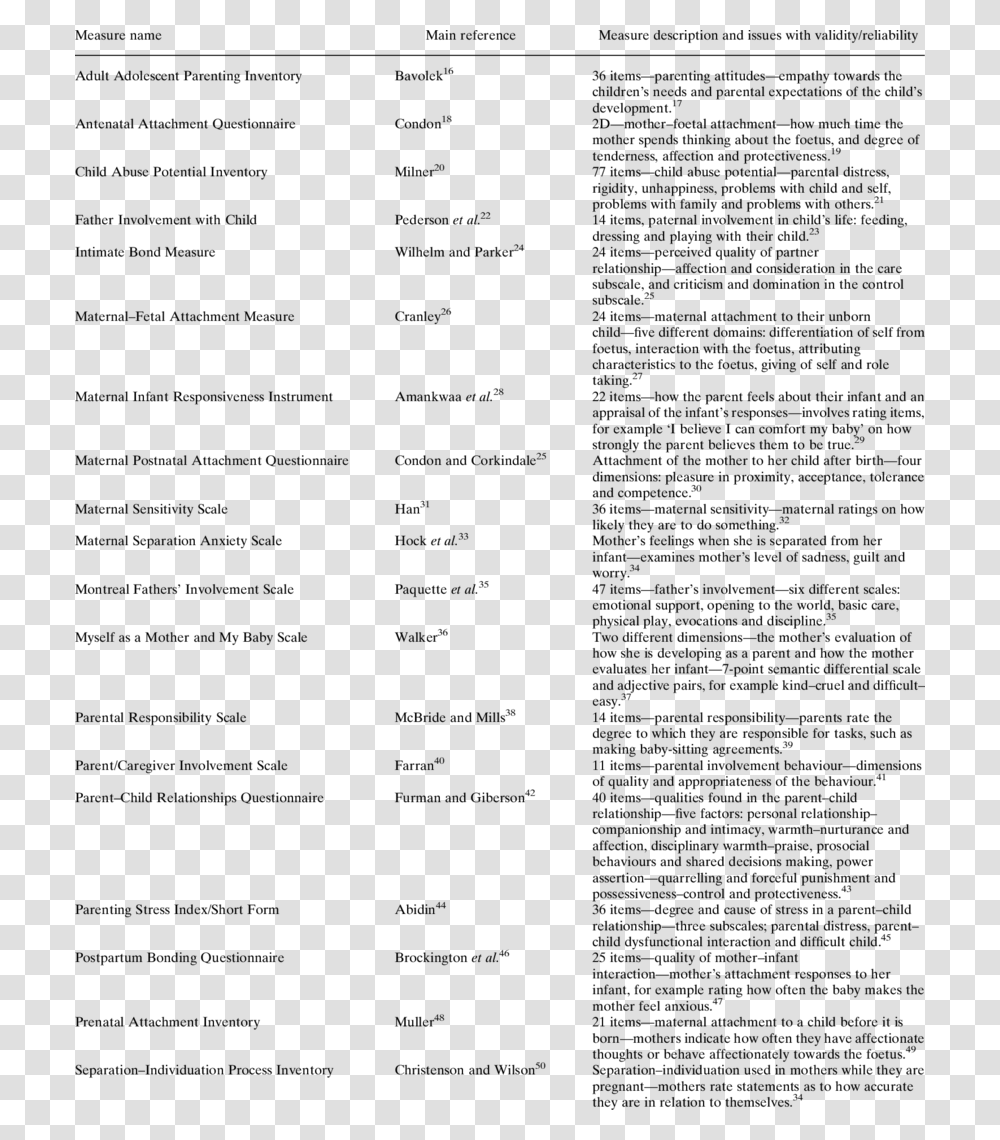



Parent And Child Parent Child Relationship Questionnaire Menu Poster Advertisement Transparent Png Pngset Com




The Development Of A Parental Attachment Recognition Scale For Mothers Nurturing Preschool Children Tanaka Public Health Nursing Wiley Online Library
ParentChild Relationship Inventory (PCRI) The statements below describe different ways some parents feel about their children For each statement, decide how you feel If you strongly agree, select the 1 next to that statement number If you agree, select the 2 If you disagree, select the 3 If you strongly disagree, select the 4 Please make sure that you are selecting the correct responseFurther, poor quality interactions among parents and children may lead to developmental problems and mental health issues (Letourneau, Drummond, Fleming, Kysela, McDonald, & Stewart, 01) Further, previous studies suggest a strong association between the parentchild relationship and children's mental healthEach question has a score from 1 – 5 To establish the mean, divide the sum by the number of questions in that section Conflicts 2 seem to be struggling with each other 12 easily becomes angry with me




Impact Of Parenting Practices On Parent Child Relationships In Children With Specific Learning Disability Karande S Kuril S J Postgrad Med




Questionnaire Measures Of The Parent Child Relationship Download Table
Focusing on other factors of the parentchild relationship Moreover, interventions targeted toward the parentchild relationship may be more successful than attempting to target other risk factors (eg, poverty, parental abuse history, social support) because parentchild interactionIn general, NetSuite supports creating a parentchild relationship between items using NetSuite's native Matrix Item functionality This feature allows you to leverage the virtual variation functionality by Celigo to setup parentchild relationship between the Inventory (Matrix & NonMatrix), Assembly (Matrix & NonMatrix), and Kit ItemsGerard, 1994) across disciplines and in numerous contexts Results revealed low score reliability, with aggregated alphas of 63 to and testretest coefficients of 62 to 79 over a




Using Psychological Testing In Child Custody Evaluations Lepage
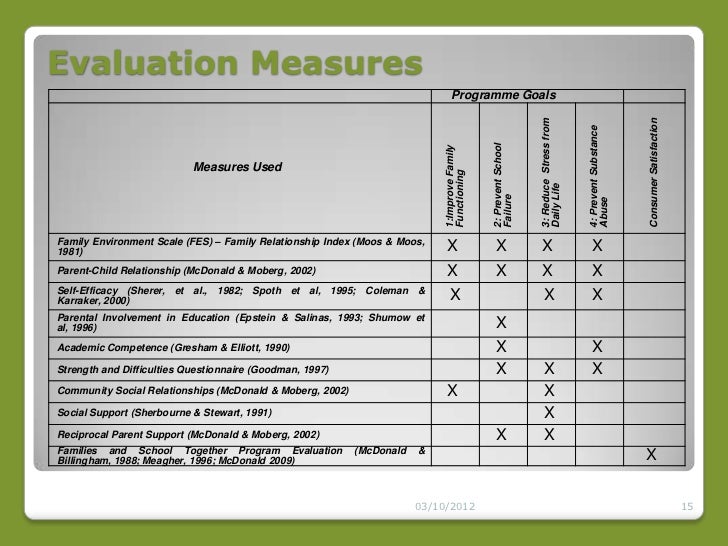



Families And Schools Together Workshop 1
The ParentChild Relationship Inventory (PCRI) is an instrument for parents to assess their relationship with their children The instrument, which contains 78 items, has been standardized on over 1,100 parents in the United States The PCRI can be completed in 15 to minutesPsychometric properties of the ParentChild Relationship Inventory (PCRI) were examined using data collected from adolescents and their parents in the Fullerton Longitudinal Study Results revealed acceptable internal consistency for most scales and moderate toChildren have the right to be heard both in public and within the family Save the Children promotes "positive parenting" With this Guide to Building Healthy ParentChild Relationships, Save the Children aims to make parents aware of the importance of positive approaches to interacting with their children that take into account childrens




Psychosocial Effects Of Parent Child Book Reading Interventions A Meta Analysis American Academy Of Pediatrics
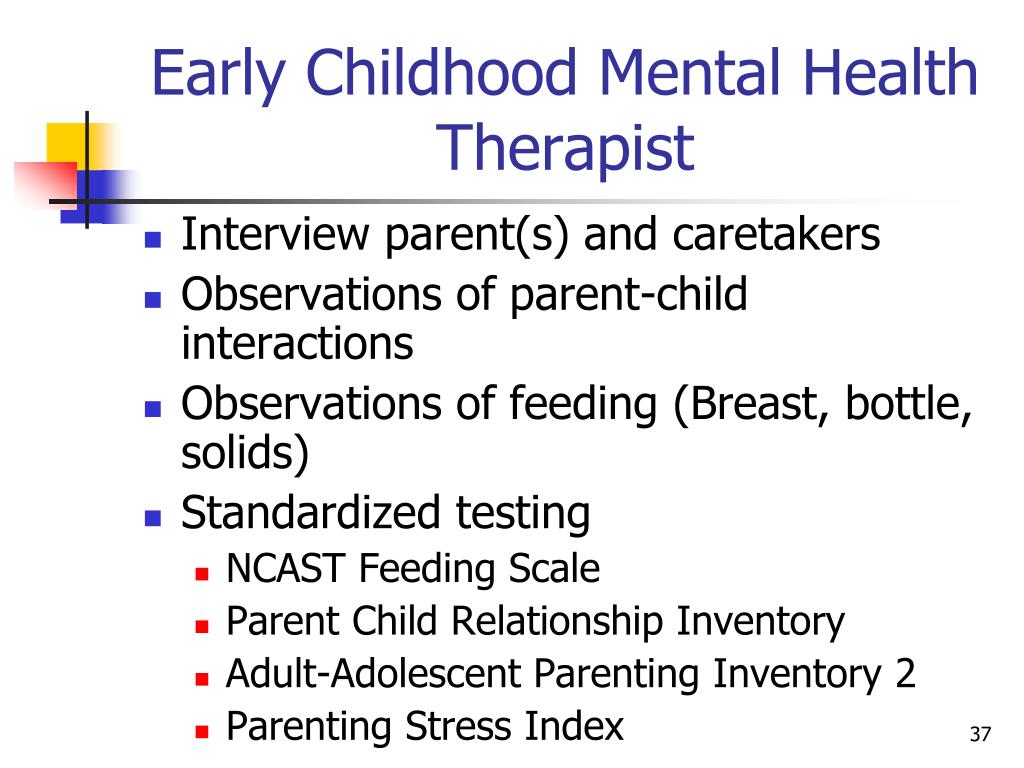



Ppt The Feeding Relationship With Infants And Toddlers Powerpoint Presentation Id
CHILDPARENT RELATIONSHIP SCALE Scoring Guide Sum the items as noted; This study presents a psychometric synthesis of data across 52 publications that met criteria and reported use of the ParentChild Relationship Inventory (PCRI;ParentChild Relationship Questionnaire myParentQuestcom Background Help give parents a second chance before they need it We all start with the best of intentions, but during the course of life, we tend to get sidetracked At myParentQuestcom, we are in the business of recognizing problems and trying to prevent them before they happen
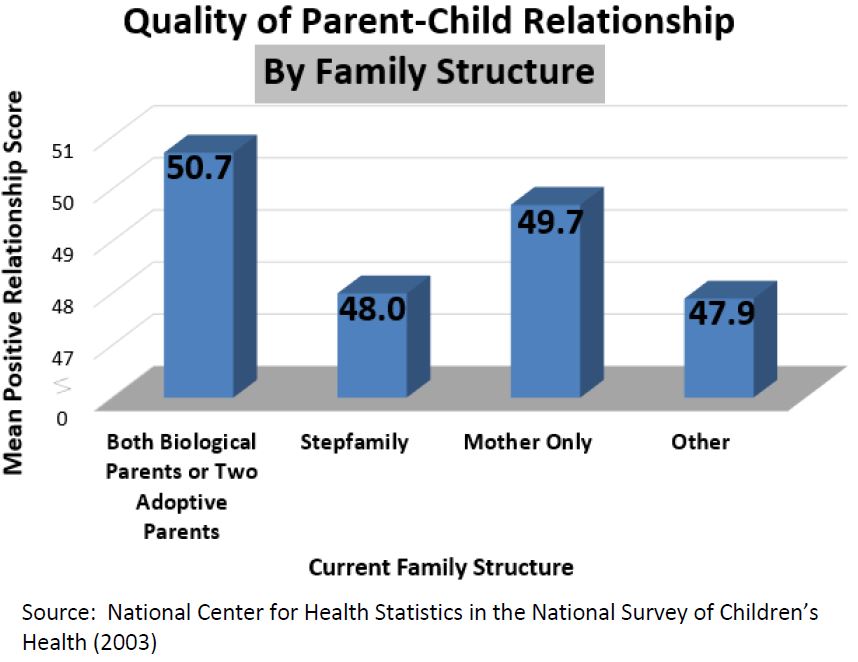



Quality Of Parent Child Relationship



Www Bristol Ac Uk Media Library Sites Sps Documents C Change Cprs Pdf
This unique selfreport inventory tells you how parents view the task of parenting and how they feel about their children Designed for use with mothers or fathers of 3 to 15yearold children, the PCRI gives you a clear, quantified description of the parentchild relationship And it identifies specific areas in which problems may occurE–7 A RESOURCE FOR EVALUATING CHILD ADVOCACY CENTERS Child Anxiety Scale—Parent Form (Beauchamp, Tewksbury, and Sanford 1997) Please answer the following questions about how you think your child has been feeling since he or she told you about the abuseDimensions Questionnaire The quality of the parentchild relationship was assessed using the ParentChild Relationship Inventory The results of this study indicated that all parenting factors examined were significant predictors of the parentchild relationship quality Age of the child was not a predictor These findings have positive social




The Association Between Parent Child Relationship And Child Loneliness Semantic Scholar
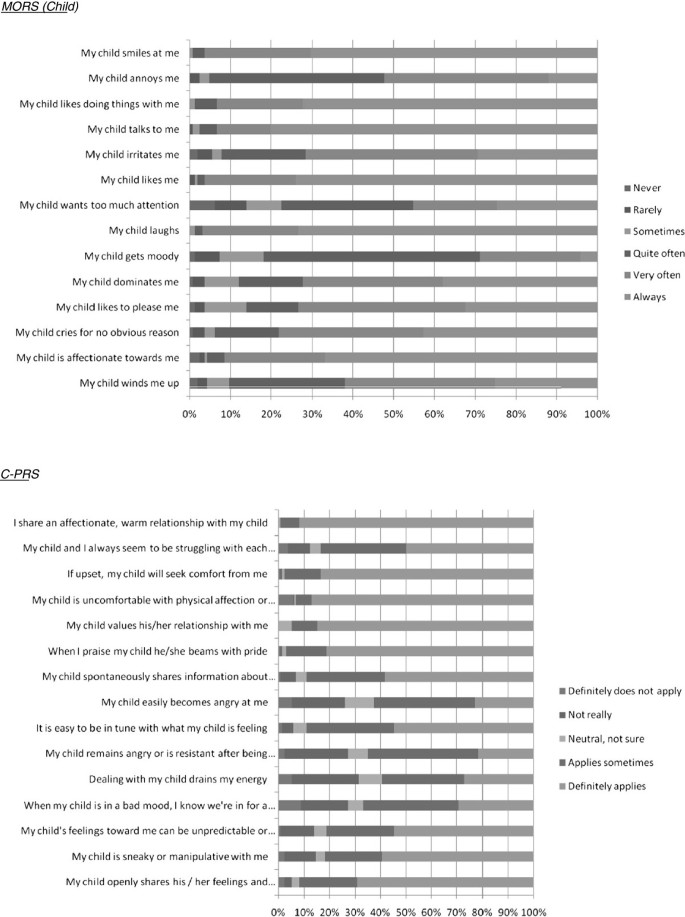



Validation Of The Mothers Object Relations Scales In 2 4 Year Old Children And Comparison With The Child Parent Relationship Scale Health And Quality Of Life Outcomes Full Text
ParentChild Relationship Inventory ParentChild Relationship Inventory Share Resource Type Instruments Author(s) Gerard Anthony B Publisher(s) Western Psychological Services Date Issued 1994 Alternative Title PCRI Source Los Angeles Western Psychological ServicesDesigned to evaluate the magnitude of stress in the parent–child system, the fourth edition of the popular PSI is a 1item inventory that focuses on three major domains of stress child characteristics, parent characteristics, and situational/demographic life stress A 36item screening form is also available!Parentchild relationship schema scale 1 Introduction Social scientists, children and parents have been trying to understand the parentchild relationship in all of its age related permutations for decades While there is considerable research on many aspects



Children With Autism In Taiwan And The United States Parental Stress Parent Child Relationships And The Reliability Of A Child Development Inventory Page 87 Unt Digital Library




Parent Child Relationships Setting Up A New Employee Video Solarwinds
ParentChild Relationship Inventory The PCRI is a parent selfreport measure of parenting skill and attitudes toward parenting and towards their children The measure yields scores on 7 content scales 1) Parental Support, 2) Satisfaction with Parenting, 3) Involvement, 4) Communication, 5) Limit Setting, 6) Autonomy, and 7) Role OrientationThe ParentChild Relationship Inventory (PCRI) is a 78item selfreport instrument designed to measure mothers' and fathers' perceptions of their relationship with an individual child and their attitudes about being parents Responses are made on a 4point Likert scale, with high scores indicating parenting behaviors that could advantageouslyGerard, A B (1994) ParentChild Relationship Inventory (PCRI) Manual Los Angeles, WPS Western Psychological Services 131 Wilshire Blvd Los Angeles, CA Phone Fax help@wpspublishcom wwwwpspublishcom $170 Yes The PCRI is a parent selfreport measure of parenting skill and




Table 1 From Validation Of The Mothers Object Relations Scales In 2 4 Year Old Children And Comparison With The Child Parent Relationship Scale Semantic Scholar
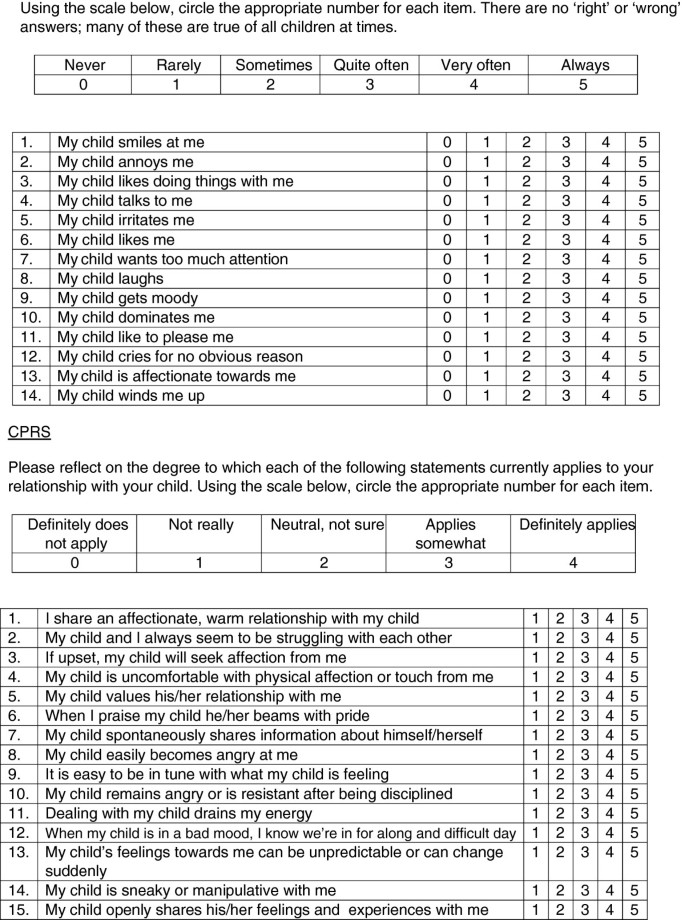



Validation Of The Mothers Object Relations Scales In 2 4 Year Old Children And Comparison With The Child Parent Relationship Scale Health And Quality Of Life Outcomes Full Text
Variation Wizard is an interactive tool that allows you to create parentchild variation relationships in bulk using an autopopulated inventory file template — and it makes adding, deleting, or updating variations a lot easierDivorce often creates significant stress that can have an impact on parentchild relationship satisfaction The purpose of this study was to examine the predictive relationship between parental stress as measured by the Parenting Stress Index, 4th Edition, Short Form (PSI4SF) and the parentchild relationship satisfaction as measured by the ParentChild Relationship InventoryParentChild relationship inventory Type Outcome measures & surveys Sector Children and families Difficulty Moderate Cost Paid for Developer/Author ANTHONY B GERARD This selfreport questionnaire explores how parents view the parenting and their feelings towards their children Parents of children aged 315 can complete this 78 item
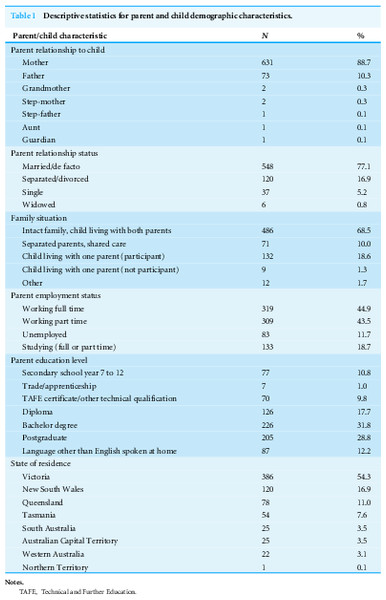



The Parenting To Reduce Adolescent Depression And Anxiety Scale Assessing Parental Concordance With Parenting Guidelines For The Prevention Of Adolescent Depression And Anxiety Disorders Peerj
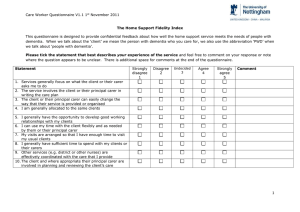



Parent Child Relationship Inventory Questionnaire




Impact Of Parenting Practices On Parent Child Relationships In Children With Specific Learning Disability Karande S Kuril S J Postgrad Med



Files Eric Ed Gov Fulltext Ed Pdf




Table 1 From Parent Child Relationships In Children Presenting With Somatic Complaints A Comparative Study Semantic Scholar
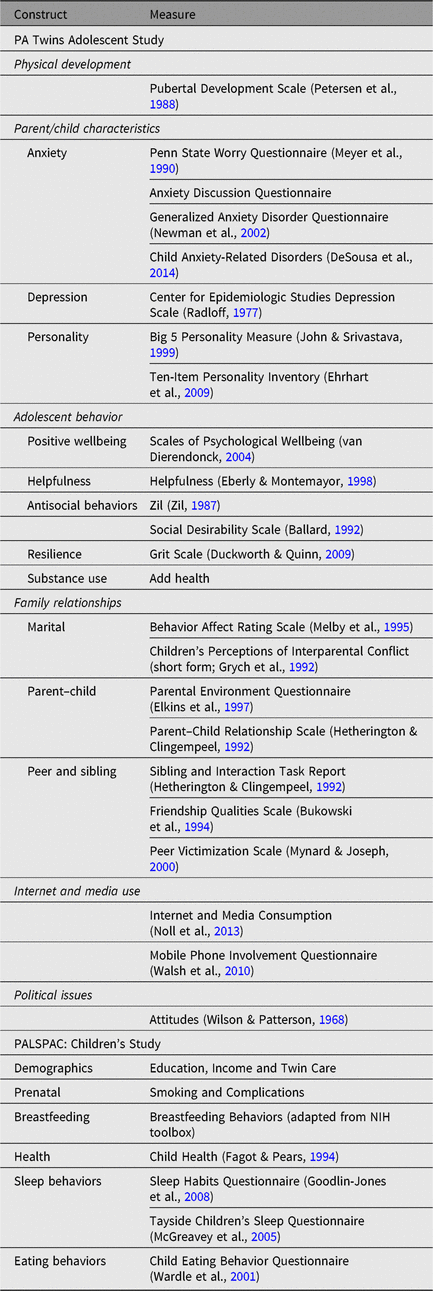



The Pennsylvania Longitudinal Study Of Parents And Children Palspac Twin Registry Twin Research And Human Genetics Cambridge Core
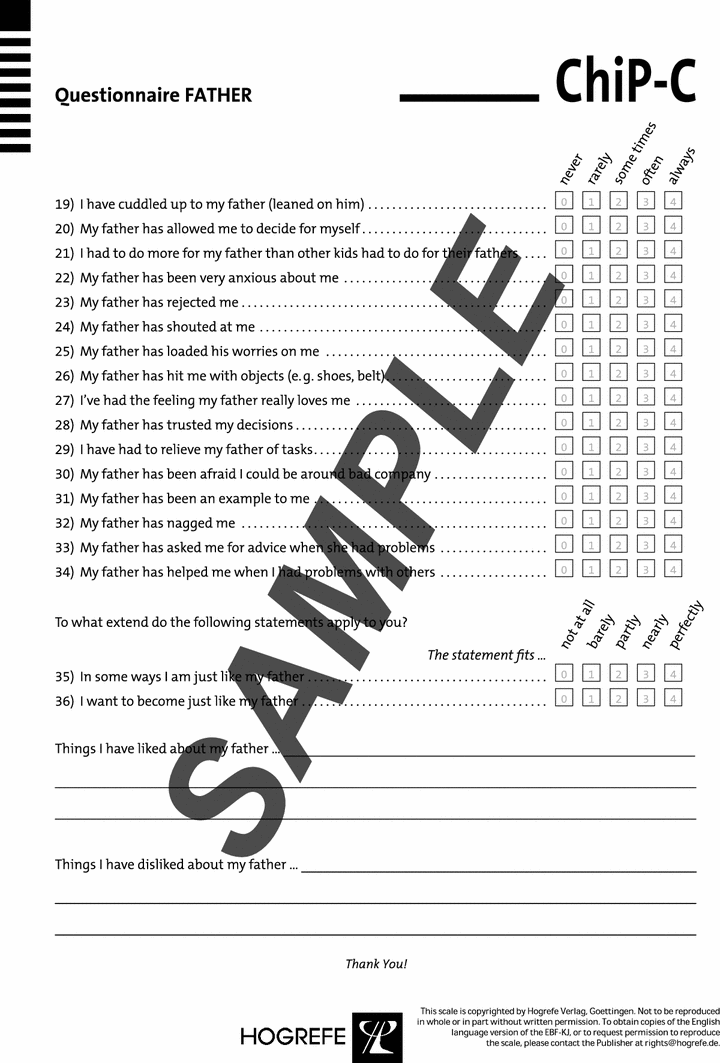



Assessing The Quality Of The Parent Child Relationship Validity And Reliability Of The Child Parent Relationship Test Chip C Springerlink



Www Tandfonline Com Doi Pdf 10 1080
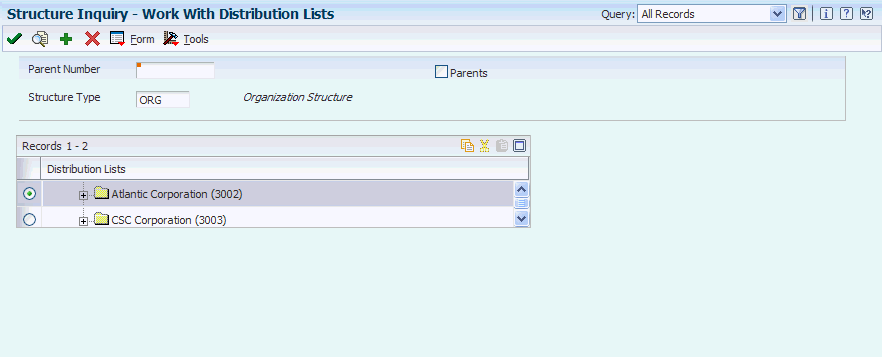



Setting Up Parent Child Relationships And Organizational Structures




Parenting Relationship Questionnaire Prq Pearson Assessment



Www Mdpi Com 76 0760 3 1 84 Pdf




Child Parent Relationship Scale Robert C Pianta Child Age Pdf
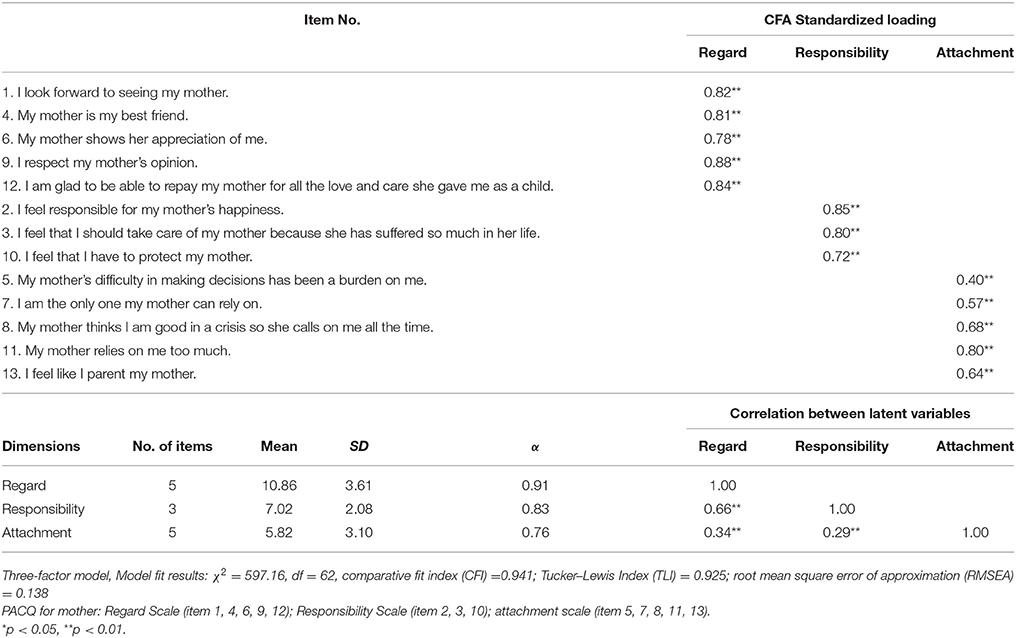



Frontiers Factor Structure Of The Chinese Version Of The Parent Adult Child Relationship Questionnaire Psychology



Whatworks Gov Ie App Uploads 19 08 Info Packs Parenting Measures July19 Pdf



Core Ac Uk Download Pdf Pdf



Reviewing Parent Child Information Step 4



Www Svri Org Sites Default Files Attachments 16 01 13 Pcri 0 Pdf



Direct And Indirect Effects Of Parenting Style With Child Temperament Parent Child Relationship And Family Functioning On Child Social Competence In The Chinese Culture Testing The Latent Models Page Xv Unt




Top Pdf Parent And Child 1library Pt



Www Uwlax Edu Globalassets Academics Grad School Psychology Taylor Poster Final Pdf



Family Interaction Relationship Types And Differences In Parent Child Interactions Document Gale Onefile Health And Medicine




Parent Child Relationship Inventory Pcri



Www Jaacap Org Article S00 8567 09 9 Pdf



2




Child Parent Relationship Scale




Vivienne S Individual Blog Religion And Parent Child Relationship Questionnaire



2



Files Eric Ed Gov Fulltext Ed Pdf




Development And Initial Validation Of The Parent Behavior Inventory



Plos One Child Parent Interactions In American And Turkish Families Examining Measurement Invariance Analysis Of Child Parent Relationship Scale



Parent Child Relationship Inventory



1
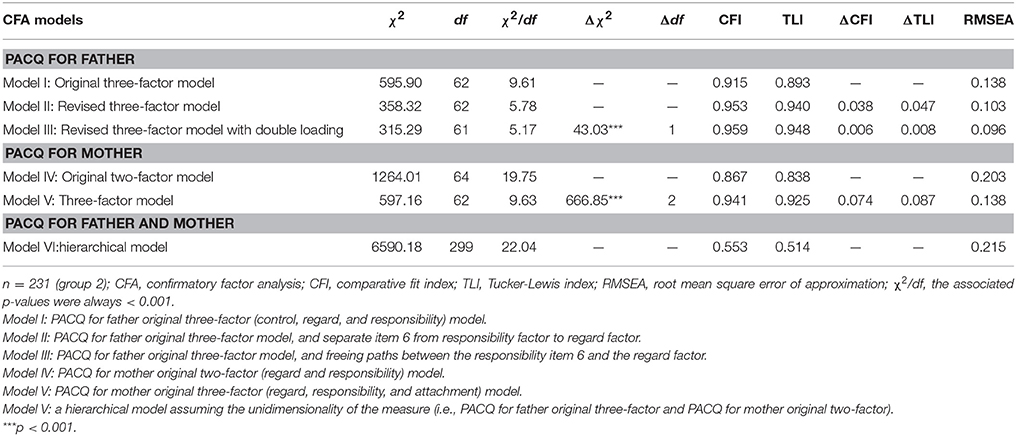



Frontiers Factor Structure Of The Chinese Version Of The Parent Adult Child Relationship Questionnaire Psychology




Products Psych Systems And Innovation Inc




The Parent Adult Child Relationship Questionnaire Docsbay



Http Www Mrc Soton Ac Uk Sws Files 19 02 12 3yr Child Parent Relationship Q Pdf
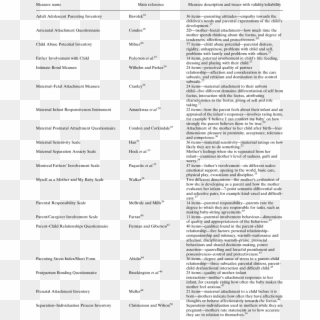



Free Questionnaire Png Png Transparent Images Pikpng




Pdf Assessing The Quality Of The Parent Child Relationship Validity And Reliability Of The Child Parent Relationship Test Chip C
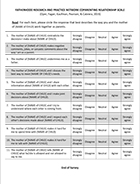



Frpn Measurement Resources Fatherhood Research And Practice Network
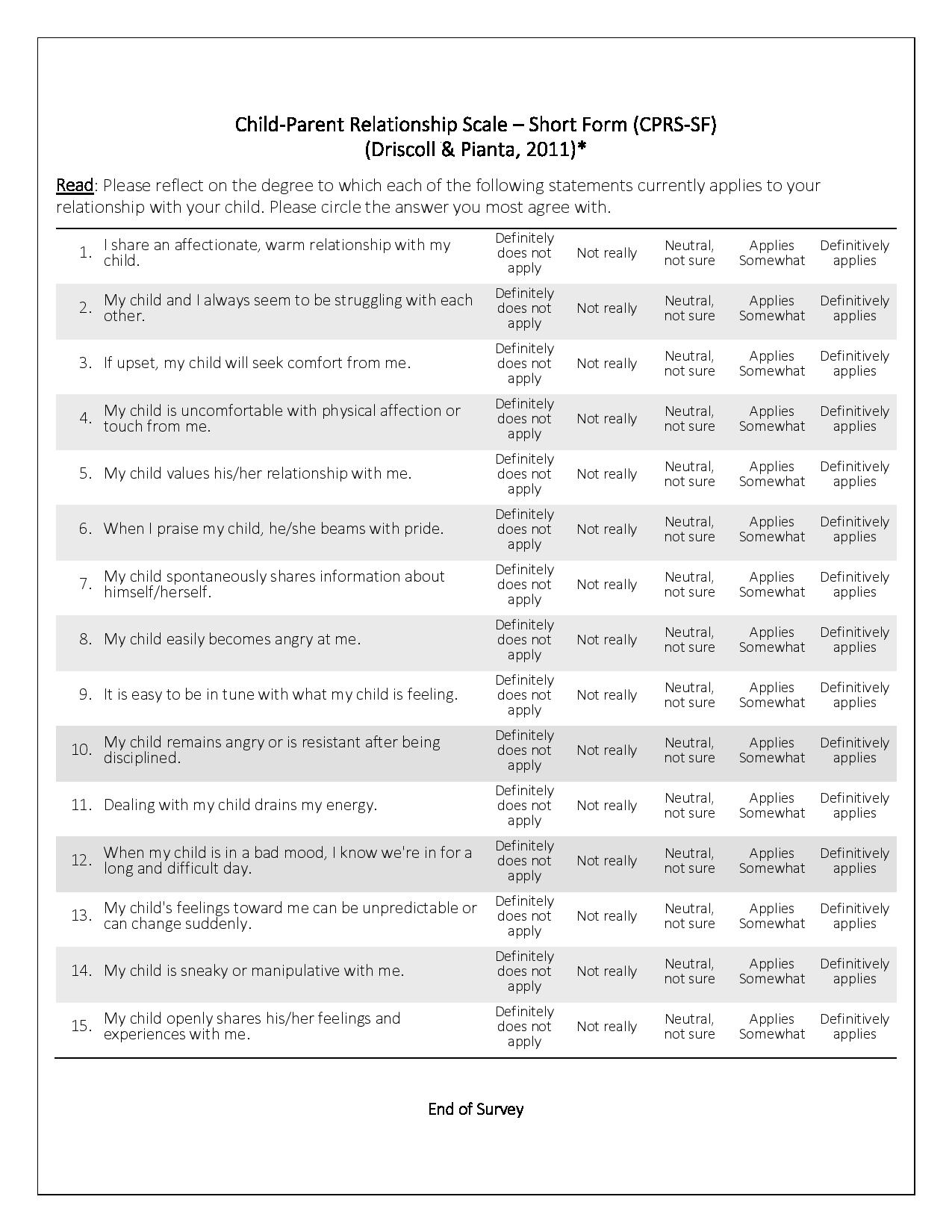



Frpn Measurement Resources Fatherhood Research And Practice Network



1



Questionnaire For Parent Child Relationships In Our Home




Pcri Parent Child Relationship Inventory Autoscore Answer Sheet Pack Of 25 Ebay
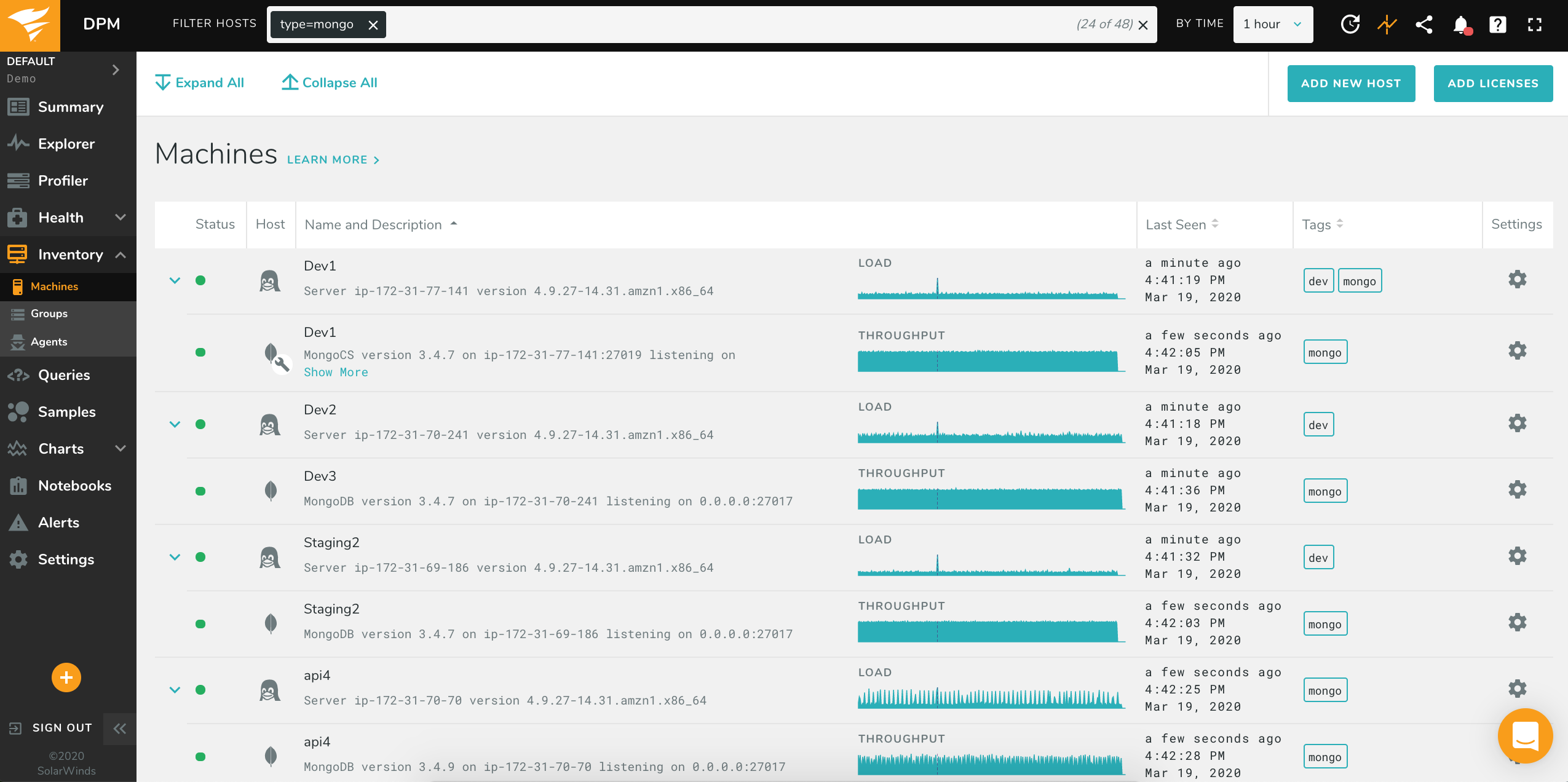



Inventory Vividcortex



1



Www Binasss Sa Cr Agocovid 8 Pdf



Http Oldgrt Lbp World Uploadeddata 575 Pdf



Plos One Depression Among Migrant And Left Behind Children In China In Relation To The Quality Of Parent Child And Teacher Child Relationships




Pdf Development Of The Parent Adult Relationship Questionnaire Parq Semantic Scholar




Questionnaire Measures Of The Parent Child Relationship Download Table



1
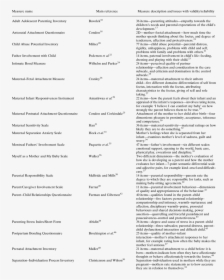



Parent Child Png Images Transparent Parent Child Image Download Pngitem




Parent Adolescent Relationship Questionnaire Parq Par



Pcri Parent Child Relationship Inventory By Acronymsandslang Com
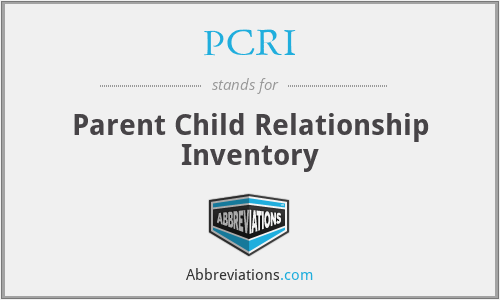



Pcri Parent Child Relationship Inventory




The Effectiveness Of Transactional Analysis On Parent Child Relationship In Mothers Of Children With Oppositional Defiant Disorder Avicenna Journal Of Neuro Psycho Physiology



Children With Autism In Taiwan And The United States Parental Stress Parent Child Relationships And The Reliability Of A Child Development Inventory Page Unt Digital Library




Questionnaire Measures Of The Parent Child Relationship Parent Child Relationship Questionnaire Clipart Pikpng



Children With Autism In Taiwan And The United States Parental Stress Parent Child Relationships And The Reliability Of A Child Development Inventory Page 72 Unt Digital Library



Core Ac Uk Download Pdf Pdf




Measuring The Parent Child Relationship Ppt Video Online Download




Transparent Parent And Child Png Parent Child Relationship Questionnaire Png Download Transparent Png Image Pngitem




Child Parent Relationship Scale




Marital Satisfaction And The Development Of Autonomy And



Core Ac Uk Download Pdf Pdf



What Does Pcrq Mean Definition Of Pcrq Pcrq Stands For Parent Child Relationship Questionnaire By Acronymsandslang Com




Impact Of Parent Child Relationship On Career Maturity Of The Adolescents Of Kolkata By International Educational Scientific Research Journal Issuu
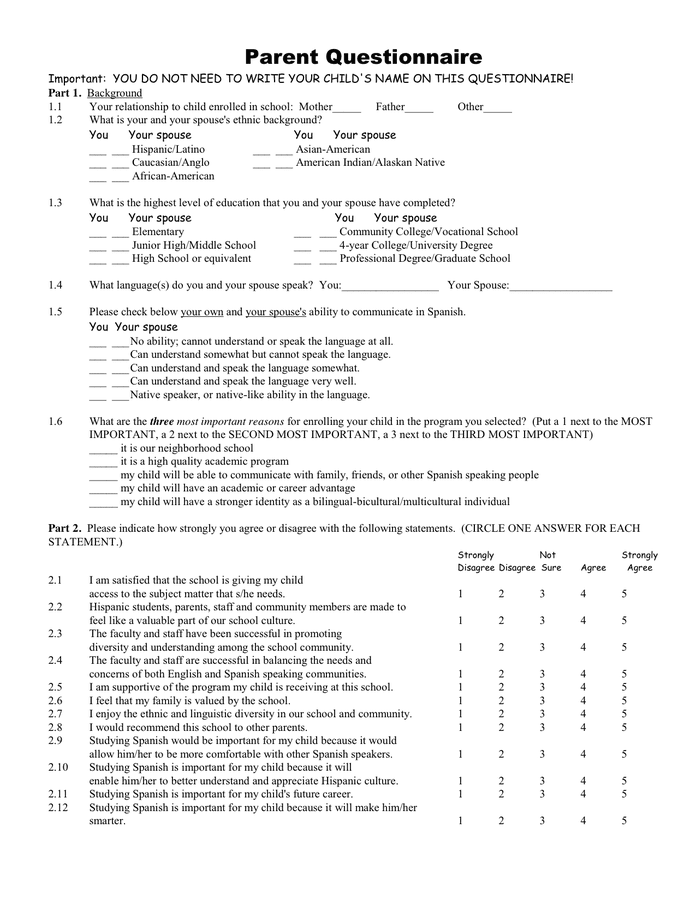



Parent Questionnaire In Word And Pdf Formats




Pdf Translation And Validation Of The Chinese Version Of Parent Child Relationship Inventory Pcri C In Hong Kong




Pcri Manual Chapter 1 Pdf Pcri Manual Cover Layout 1 3 35 Pm Page 1 Parent Child Relat Ionship Inventory Pcri Manual Anthony B Gerard Ph D Course Hero




Factor Structure Of The Chinese Version Of The Parent Adult Child Relationship Questionnaire Semantic Scholar




Pdf Parent Child Relationship Of Teenagers Ijip Journal Academia Edu




Summary Of Subscale Results In The Parent Child Relationship Download Table




Summary Of Subscale Results In The Parent Child Relationship Questionnaire Download Table




The Association Between Parent Child Relationship And Child Loneliness Semantic Scholar
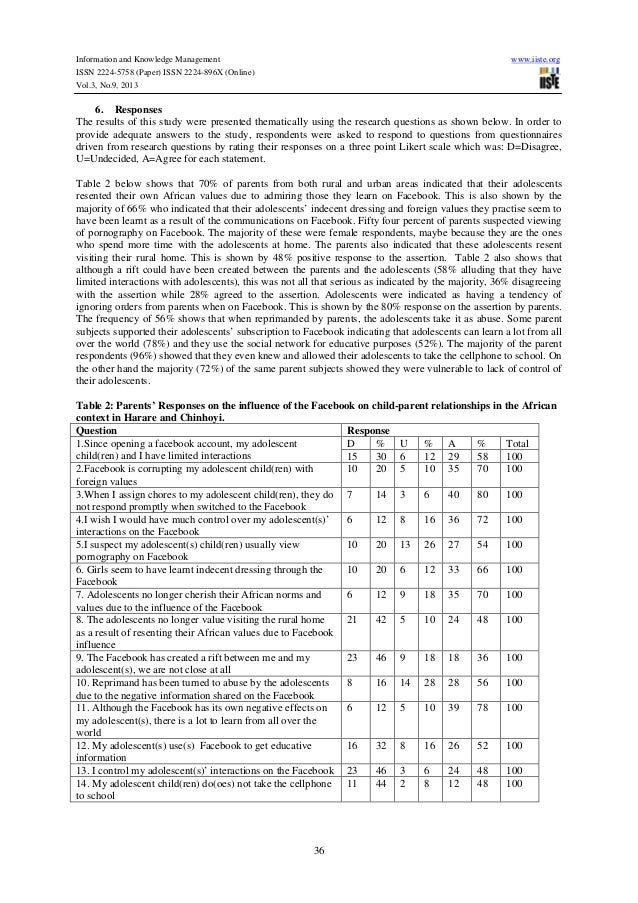



Impact Of The Facebook On Parent Child Relationship In The African Co




Measuring The Parent Child Relationship Ppt Video Online Download




Psi 4 Parenting Stress Index Fourth Edition
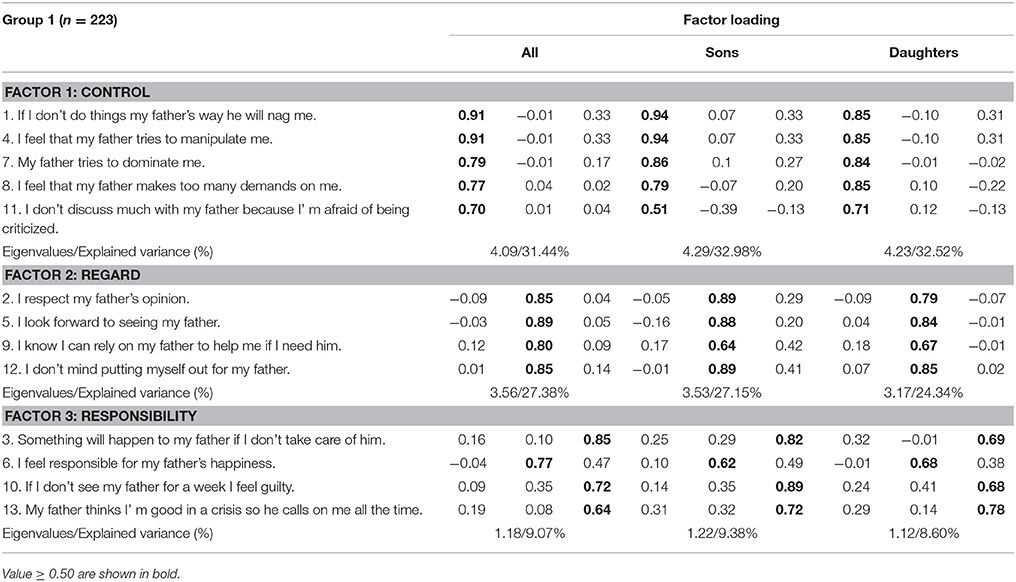



Frontiers Factor Structure Of The Chinese Version Of The Parent Adult Child Relationship Questionnaire Psychology



Basc 3 Prq Basc 3 Parenting Relationship Questionnaire




Pcri Parent Child Relationship Inventory




Parent Child Relationship And Smoking Among College Students Role Of Parents In Females And Males Smoking Behavior Practice In Clinical Psychology



0 件のコメント:
コメントを投稿